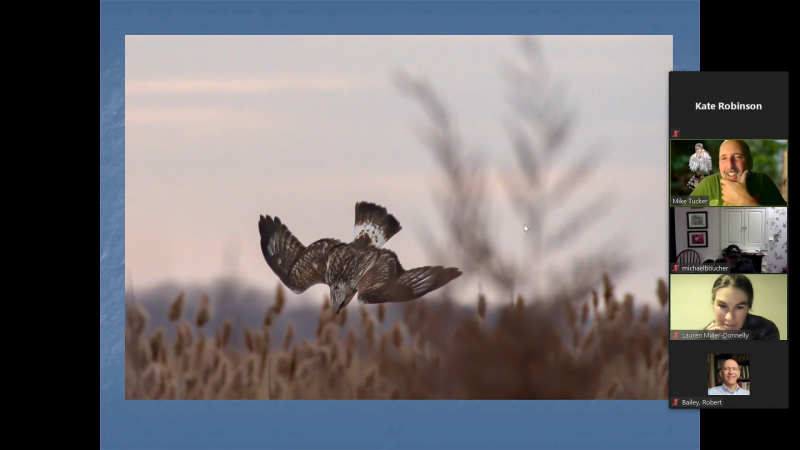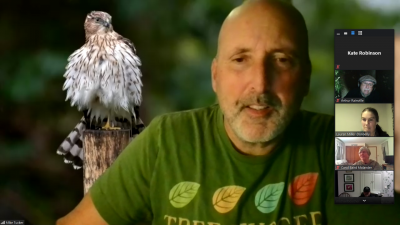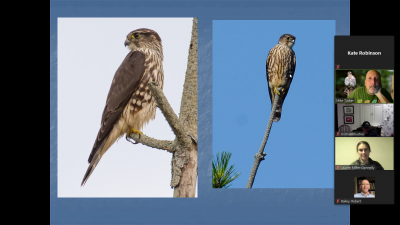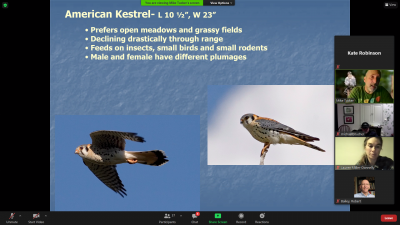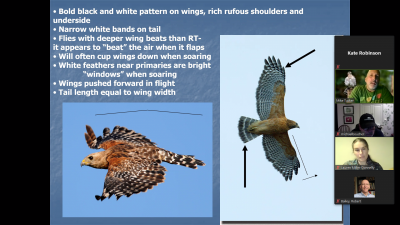For the birds: Hawk talk from local birding expert
Dartmouth’s Paskamansett Bird Club kicked off 2021 with a well-attended virtual presentation all about some of our most popular predators: hawks.
Over 40 residents and friends signed in to Zoom for two hours on Jan. 13 to hear Woods Hole naturalist and birder/photographer Mike Tucker talk about identifying the raptors in flight.
“I’m really happy to see such great turnout,” said club president Lauren Miller-Donnelly at the start of the meeting. “Everybody is interested in hawks!”
Club members quickly went over a tally of birds seen during a Christmas count (109 species in one day) and noteworthy mentions from their own backyard bird feeders before the main event.
During his talk Tucker outlined distinctive physical and behavioral features for different raptor groups like buteos, accipiters, and falcons and the species in each that are most likely to be found in southern Massachusetts.
He highlighted especially unique behaviors, like the fact that red-tailed hawks will often “kite,” or face into the wind and hang in the air with little to no movement.
“They just sit there,” he said. “It’s like you could place a glass of wine on its back and it won’t even move in a 25-knot wind. It’s really incredible to see.”
Meanwhile peregrine falcons, he said, are “just spectacular birds that always get everybody’s attention.”
“When you see one of these birds hunting, and you see it actually successfully grab something, you will never forget it,” he added. “The way it flies, it seems to defy physics.”
While watching them on Block Island during their migration, Tucker even saw some of them snacking mid-flight.
“It’ll have a bird in its talons...You see it flying around, you see it pull its head down, take a couple bites out of it, continue soaring around,” he remembered. “Just kind of like taking a little road trip snack with ‘em.”
Tucker gave out memorable expressions and anecdotes for every bird he introduced, from the Cooper’s hawk (“They really have a big noggin,” he said) to the northern goshawk (“‘Flying stovepipe’ is an expression that has been used to describe them.”)
As for the Arctic gyrfalcon, which is rarely found in Massachusetts, he said he would love to see one.
“If anybody sees a gyrfalcon, call me right away, I don't care if it’s in the middle of the night,” he laughed. “I wanna know.”
The expert birder also touched on less “hawk-like” birds including turkey vultures and bald eagles.
And despite speaking for over an hour, Tucker’s enthusiasm never flagged.
At one point, while describing American kestrels, he declared to the audience, “They’re one of my favorite birds.”
Then he paused. “I say that about a lot of birds.”



